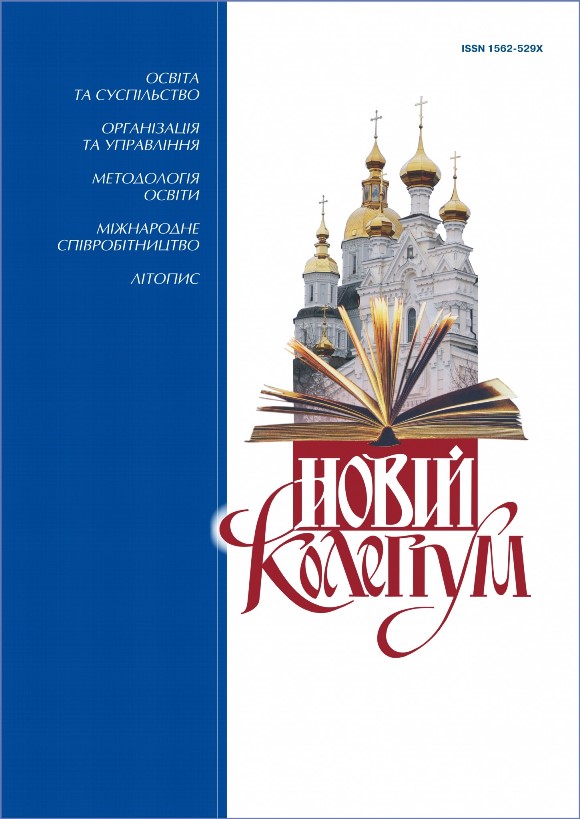Educational work in institutions of higher education in the conditions of distance learning
DOI:
https://doi.org/10.30837/nc.2023.3.32Keywords:
distance learning, educational process, institution of higher education, educational work, online format, forms of educational work, H.S. Skovoroda KhNPU, Faculty of Physics and MathematicsAbstract
The article is devoted to the analysis of the peculiarities of the implementation of forms of educational work with students of higher education in the conditions of distance learning (from the experience of H.S. Skovoroda Kharkiv National Pedagogical University), based on the approach to education and upbringing as a single process, continuous at all stages of education. Traditional forms of educational work with students in a higher education institution (organizational, practical, verbal, active, face-to-face) were considered and it was proved that in the conditions of distance learning they acquire special features and even certain new opportunities due to the online format. Examples of such educational activities are given and the specifics of preparation and implementation of them are revealed at the Faculty of Physics and Mathematics H.S. Skovoroda KhNPU. Meetings of the student team (in courses, in groups, meetings of student self-government bodies, etc.); festivals and competitions (university and faculty); interactive online games and quizzes; online tours; different types of meetings; online holidays; flash mobs and challenges are concedered as examples of such educational activities. The role of curators in the educational process in a distance format has been specified. Special attention is paid to the work of Student Council, its structure and committees and it is emphosised on the cooperation with student self-government. The areas of coverage of educational activities due to the use of modern Internet technologies are considered – websites, social networks, chats, channels, etc. The following features of educational work in institutions of higher education were singled out as significant: overcoming spatial and temporal barriers between participants in the educational process; overall quantitative and qualitative increase in the number of participants in educational activities; individualization of work with students; popularization of the idea of student self-government; changes in organizational principles and introduction of new methods of educational work; strengthening of requirements for digital competence of participants, etc. It is emphasized that taking into account the specified advantages should perform a compensatory function during the aggravation of the problems of the implementation of the educational process associated with the limitations of the distance form of education.
References
Концепція виховної роботи на 2021 – 2025 рр. URL: http://hnpu.edu.ua/sites/default/files/files/Normat_dokum/Pol/Koncepcia_vyhovnoi_robotu.pdf (дата звернення 01.03.2023 р.)
Концепція виховання дітей та молоді в цифровому просторі. URL: https://ipv.org.ua/wp-content/uploads/2021/08/Kontseptsiia-vykhovannia-ditey-ta-molodi-v-tsyfrovomu-prostori.pdf (дата звернення 01.03.2023 р.)
Особливості організації виховної роботи на фізико-математичному факультеті зі здобувачами вищої педагогічної освіти в умовах дистанційного навчання. URL: https://drive.google.com/file/d/1IJDngKg_amQY9_4Zory-_hYdWJkRLFU3/view (дата звернення 01.03.2023 р.)

